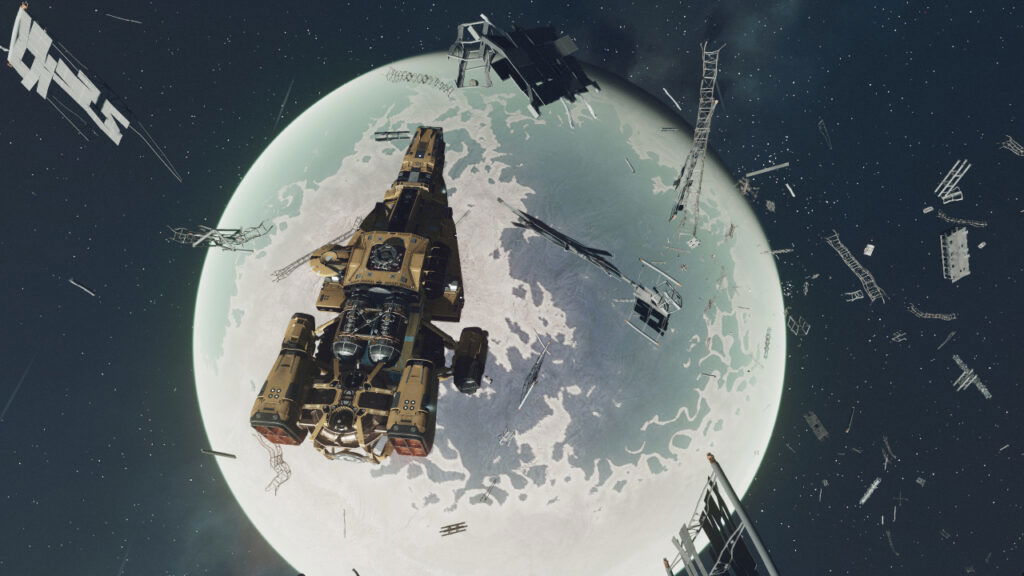Skip To...
Starfield tries so many things and incorporates so many systems that it’s sometimes hard to know what to compare it to. Mass Effect, Star Wars: Knights of the Old Republic, Elite Dangerous, and No Man’s Sky all come to mind. All of those games are brilliant in their own ways, but Starfield arguably offers more than any of them. From Backgrounds to the skill trees, there’s a lot to love about Bethesda’s sci-fi triumph. When it comes to space exploration in particular, there’s a lot to celebrate, and it’ll take players a while to see everything. Here are the top ways Starfield nails space exploration.
Random Encounters

Starfield is far from the first game to include random encounters in space, but it does them so well that they’re worth highlighting. Anytime the player activates their Grav Drive and travels to another planet or star system, there’s a chance of a random encounter triggering. These range from distress calls from civilians to pirate ambushes and even wilder occurrences. The player can even increase their odds of these encounters occurring by taking the Wanted Trait during character creation. Doing so causes bounty hunter pursuers to periodically attack during their travels. Many games do random encounters, but few give the players good options for directly changing them.
Well-Paced Travel
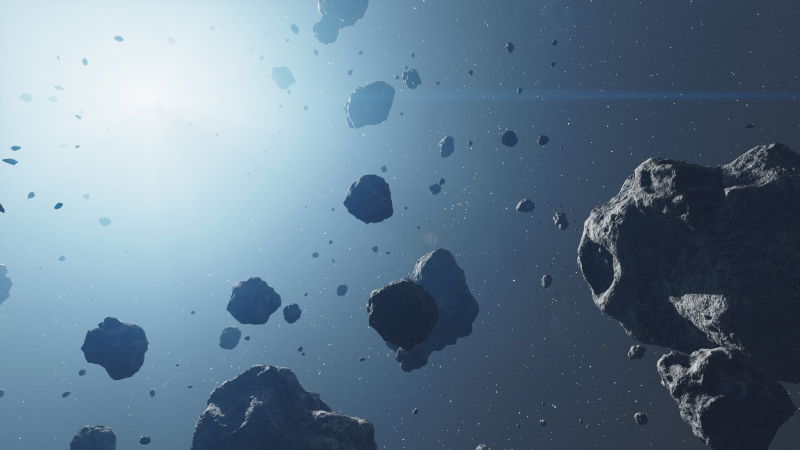
The Starfield community remains split on how well-paced traveling is. Fast traveling can disrupt the natural rhythm of exploration and even prevent random encounters, so players who lean heavily on that feature may walk away feeling dissatisfied. For those that fast travel less frequently, however, Starfield reveals itself to be a more gradual, graceful, and satisfying experience. Fast traveling lets you speedrun the main story, but many of the game’s best moments happen during exploration. Gradual exploration also gives players time to deepen relationships with companions and take in the beautiful setting.
Cities Feel Alive
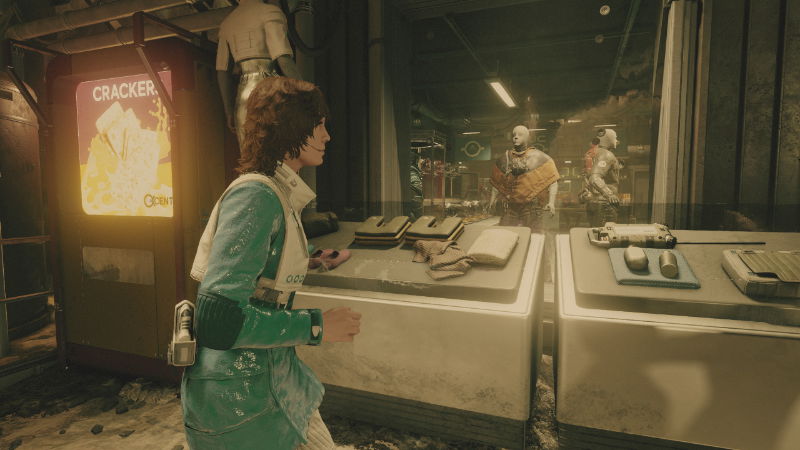
Bethesda hasn’t always done well when it comes to making its towns and cities feel alive. In Skyrim, players would often arrive at major cities only to discover just a handful of NPCs wandering around. That’s one problem Starfield doesn’t have. Perhaps the finest example is Neon, a city ridden with crime and bathed in the rainbow glow of those titular lights. Whether you’re shopping, diving into gang politics, or just bumping shoulders with a random passerby, Neon delivers an authentic sci-fi experience. Traveling between living and breathing settlements while cruising around the galaxy feels fantastic and is arguably unmatched in the genre.
Ships Look and Feel Great
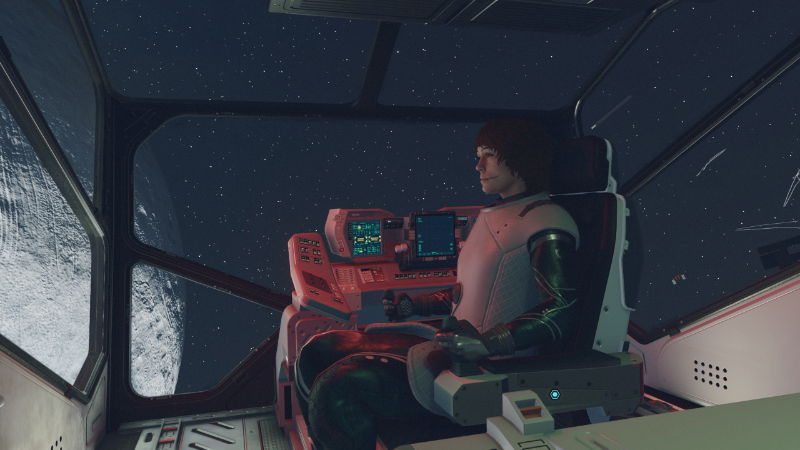
How your spaceship looks and feels has a serious impact on the quality of exploration. Whether you’re touching down on Earth or dogfighting above an alien atmosphere, you need a ship that fits the part. Some sci-fi games that are otherwise great have spaceships with all the cool factor of a damp potato. Ships in Starfield don’t just look good sitting in on the launchpad. From the roar of their thrusters to the clamor of their guns, ships feel amazing. That makes space exploration a joy because no matter what the player is doing with their vessel, they can do it in style.
Rewarding Space Combat
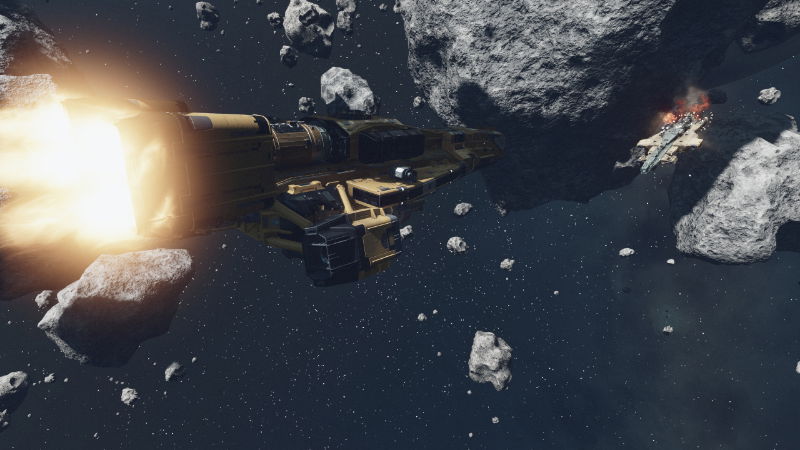
It might seem strange to talk about combat in terms of exploration, but in sci-fi RPGs, they go hand-in-hand. If the action is too infrequent, exploration can lose its thrill because there’s little risk. If combat is too common, the player never settles into the relaxed rhythm that good space exploration demands from time to time. Starfield strikes the right balance, keeping players on their toes with frequent and sometimes challenging fights, but it’s never too much. Whether you’re playing a pirate, a scientist, a trader, or something else entirely, combat keeps space exploration interesting.
Proc Gen, POIs, and Outposts

When it comes to exploration, the planets you fly to matter as much as the space you traverse across. Starfield is far from the first to use procedural generation to create its many worlds. Yet, it uses this technology better than almost any of them. With flora and fauna to scan, Points of Interest to discover, and outposts to build, there’s always something worth doing on the surface.
Whereas the procedural generation in some games creates an overwhelming feeling of “been there, done that,” Starfield does a good job of keeping things fresh. Will players eventually get tired of the similarities between landing sites? Maybe. For now, though, these sites are just one more way Starfield nails space exploration.
Starfield is available for PC, and

